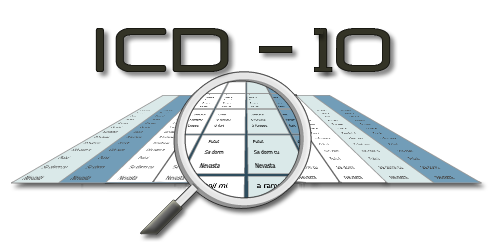ICD-10 codes for mental health are codes that will be used to specify the different kinds of psychological patterns reflected in behaviors associated with distress or disability not considered part of the normal development.
Mental disorders are normally associated with particular parts of the brain or the nervous system. As of October 1st medical practitioners will be required to use the revised ICD-10-CM codes as a replacement of ICD-9 that are currently being used, the newly revised codes will also see an updated DSM-V.
With the new ICD-10 mental coding system, there have been some revisions on the classification of mental conditions with more granularity and greater detail. ICD-10 codes for mental health will be specific and standardized for specific conditions. ICD-10 codes for mental health will incorporate more categories subcategories and codes.
A good casing example is the major depressive disorder that is coded by 296.2 in both DSM-VS in ICD-9; the same condition will be coded by F32 in ICD-10.
Mental disorders affected by adult personality and behavior will be specified by ICD-10 codes F60-F69 while conditions associated with Pervasive and specific development disorders will be specified by F80-F89.
There are patients that are normally faced by Behavioral and emotion disorders that surely start to creep in, in childhood or adolescence, for this category ICD-10 will rely on the codes F90-F98 for specific categorization.
Currently, the DSM-IV code numbers reflect the ICD-9-CM codes. However, the DSM-5 codes will have to reflect those from the ICD-10-CM because use of the ICD-10-CM became mandatory for all health professionals in October 2014.
For proper billing and coding one will need to familiarize him or herself with both DSM and ICD-10 as well as CPT, This is because the structure for billing and coding in ICD-10 is extremely different as to the one being used in ICD-9. ICD-10 comes with a new arrangement of categories and alpha numeric codes that require a level of understanding for proper coding.
Mental disorders are normally associated with particular parts of the brain or the nervous system. As of October 1st medical practitioners will be required to use the revised ICD-10-CM codes as a replacement of ICD-9 that are currently being used, the newly revised codes will also see an updated DSM-V.
With the new ICD-10 mental coding system, there have been some revisions on the classification of mental conditions with more granularity and greater detail. ICD-10 codes for mental health will be specific and standardized for specific conditions. ICD-10 codes for mental health will incorporate more categories subcategories and codes.
ICD 10 Codes for Mental Health Disorders
Below are the main categories for mental health specification in ICD10:- ICD 10 Codes F01-F09 is the category that will be used to specify Mental Disorders caused by any known physiological condition, in between the code will have subcategories specifying specific conditions attributed to physiological factors.
- F10-F19 ICD codes will be used to specify Mental and Behavioral Disorders caused by any psychoactive substance abuse especially the misuse of drugs.
- Unspecified mental disorder will on the other hand be specified by F99-F99.
- F20-F29 will be used to specify Schizophrenia Schizotypal, Delusional and any other form of Non mood disorders.
- ICD-10 codes between F30 and F39 will be used to specify any form of mood affective disorder.
- F40-F49 ICD-10 codes will be used to specify mental disorders involving anxiety, dissociative stress related Somatoform and other forms of Nonpsychotic Mental disorders.
- Behavioral syndrome associated with Physiological Disturbance and physical factors will be specified in ICD-10 by F50-F59.
ICD 10 Codes for Behavioral Health Diseases
The categories to be used for mental health and behavioral disorders in ICD-10 are a bit different compared to the ones currently being used in ICD -9.A good casing example is the major depressive disorder that is coded by 296.2 in both DSM-VS in ICD-9; the same condition will be coded by F32 in ICD-10.
Mental disorders affected by adult personality and behavior will be specified by ICD-10 codes F60-F69 while conditions associated with Pervasive and specific development disorders will be specified by F80-F89.
There are patients that are normally faced by Behavioral and emotion disorders that surely start to creep in, in childhood or adolescence, for this category ICD-10 will rely on the codes F90-F98 for specific categorization.
ICD10 and DSM-V Codes for Mental Health Disorders
Medical practitioners will be forced to use both ICD-10 codes with DSM-V codes while carrying out any coding of any mental disorder. The reason why mental health professionals can use the DSM-IV for diagnosis is because the DSM derives its code numbers from the ICD.Currently, the DSM-IV code numbers reflect the ICD-9-CM codes. However, the DSM-5 codes will have to reflect those from the ICD-10-CM because use of the ICD-10-CM became mandatory for all health professionals in October 2014.
For proper billing and coding one will need to familiarize him or herself with both DSM and ICD-10 as well as CPT, This is because the structure for billing and coding in ICD-10 is extremely different as to the one being used in ICD-9. ICD-10 comes with a new arrangement of categories and alpha numeric codes that require a level of understanding for proper coding.


Post a Comment
Webmaster reserves the rights to edit/remove comments that is found irrelevant, offensive, contain profanity, serves as spam or attempts to harbor irrelevant links. Please read our Comments Policy for details.